Have you ever wondered what happens to the plastic bowl your food comes in when you order your favourite dish? As the global food delivery market continues to expand, the environment often finds itself burdened; an estimated 3,50,000 tonnes of single-use plastic is waste generated every year.
The food industry relies heavily on plastic packaging due to its practicality. Its ability to prevent spills, and minimise costs makes it an attractive option for businesses.
But what if a simple material could withstand the high temperatures of piping-hot rasam (a south Indian broth), be spill-free, and also biodegradable?
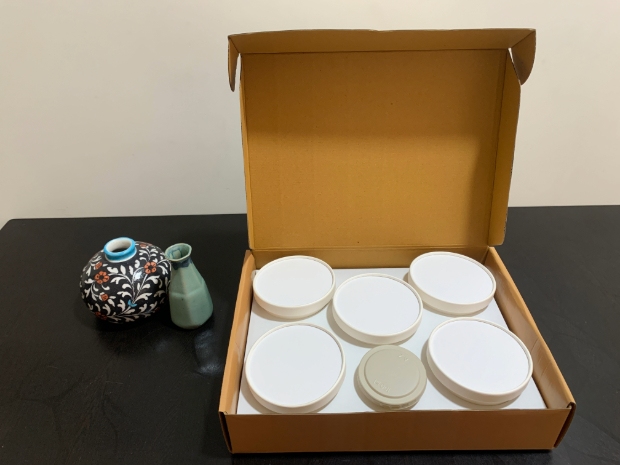
Aecoz, a Bengaluru-based startup, is using paper to make cups, bowls and containers that are biodegradable and durable.
Founded by Dhanvita Sathyanand, Srinidhi Rajaram, and Bharath Sathyanand, this family enterprise claims to have prevented the use of over four lakh kilograms of plastic, while generating a remarkable Rs 5.2 crore in annual revenue.
Journey into entrepreneurship
Before they ventured into food packaging, the trio had thrived in corporate careers. With backgrounds in IT and management, they had worked at top firms like Infosys, Tesco, and JP Morgan. Despite their successful careers, they felt a calling to step out of their comfort zones and build something of their own.
This vision led the trio to establish Cartier Hotels, a four-star hotel in Bengaluru in 2015. While it was a rewarding experience, it also came with its share of challenges.
Managing the hotel exposed them to a glaring gap in the food and hospitality industry: inefficient procurement processes. “We realised how much time and resources were wasted in sourcing raw materials and managing supplies. It was chaotic, and we thought, why not use technology to solve this problem?” recalls Bharath, Dhanvita’s cousin.
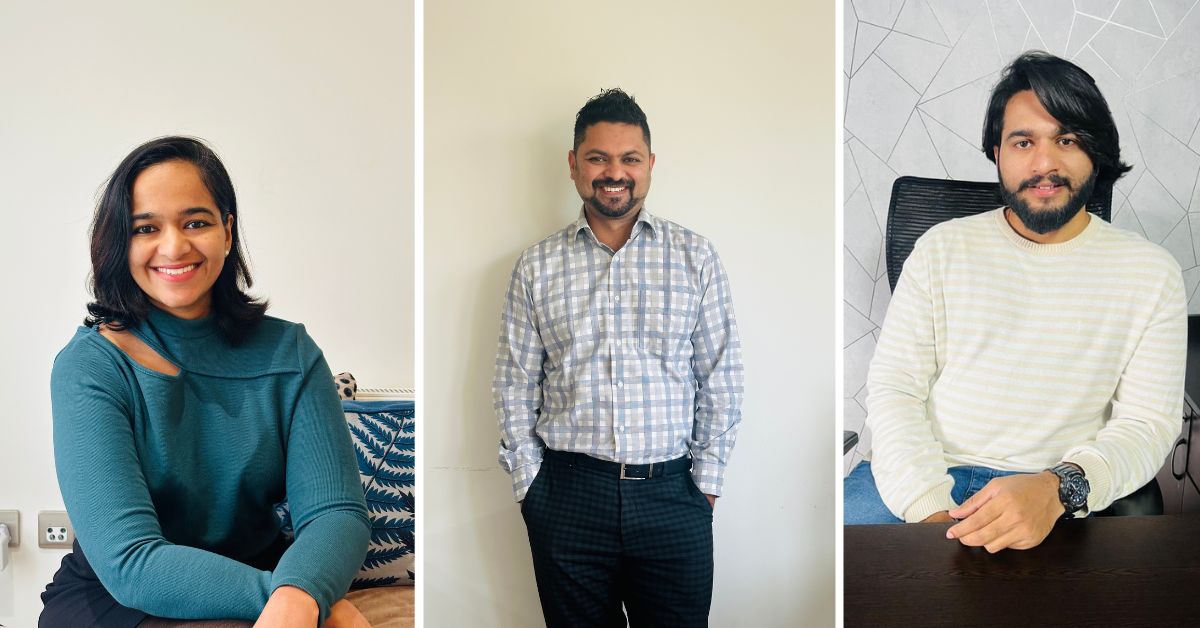
This realisation sowed the seeds of their second venture — an innovative platform aimed at streamlining procurement in the hospitality sector named ‘Agrainz’. “We built a website to manage the raw materials for restaurants,” shares Srinidhi, Dhanvita’s husband.
Agrainz provided restaurants with calculations to determine the expected yield and minimise waste from their raw material purchases. “They preferred a one-stop solution for the suggestions we gave, and we eventually started supplying 450 gourmet products like cheese and other perishable goods,” shares Dhanvita.
The venture was short-lived due to COVID-19 and their perishable products couldn’t meet its consumers due to the lack of demand, leading to financial losses for the founders.
“We wanted to create something tangible that truly made a difference,” says Srinidhi. This laid the foundation for Aecoz in 2020, a boot-strapped startup focused on sustainable packaging solutions for the food industry.
Packaging out of paper
While the 2019 plastic ban may not have achieved its full potential, it served as a valuable catalyst for the development of biodegradable packaging alternatives for these entrepreneurs. “It was ‘EatFit’ (a food outlet catering to your diet), who asked for biodegradable packaging. We took the challenge seriously and with a little trial and error, were successful in creating a durable yet sustainable product,” says Dhanvita.
Aecoz’s paper packaging production begins with sourcing paper reels from ITC; “They supply about 85-90% of the paper we use,” explains Bharath, who oversees the manufacturing unit. “These reels are coated with a water-based barrier, making the paper suitable for food packaging.”
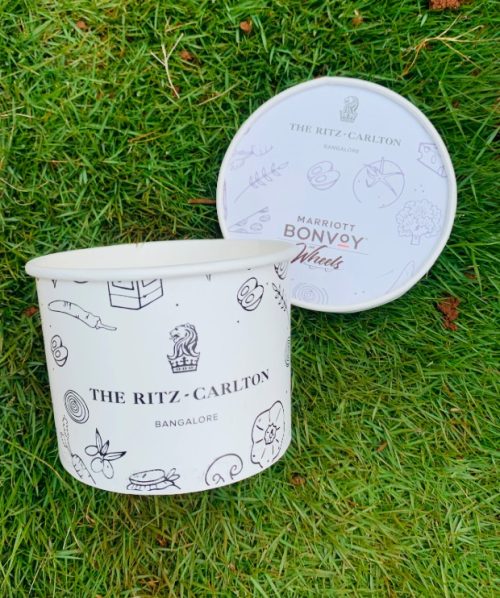
“This aqueous coating on our products makes the packaging 98% biodegradable in 180 days as certified by the Central Institute of Petrochemicals Engineering & Technology (CIPET),” shares Dhanvita. The product has also received food grade, pollution and no-plastic certification from CIPET.
These reels are cut into blanks and formed into bowls. The bowls then pass through high-temperature coils reaching approximately 350°C to melt the coating and create a durable, heat-resistant product.
“Each machine operates at an impressive speed, producing 40-45 pieces per minute,” Bharath informs. “Aecoz utilises specialised machines to produce various sizes from 50 ml to 1000 ml, ensuring that every product meets the specific needs of our clients,” he adds.
To date, Aecoz, primarily dealing B2B, has produced and sold more than 4.5 crore products like cups, bowls, containers, lids, boxes, and more.
“Apart from providing an effective solution to microplastics and single-use plastics, our biodegradable packaging has prevented the use of over four lakh kilograms of plastic, significantly reducing pollution in the food industry,” says Dhanvita.
Building a Rs 5 crore venture
Not all restaurants in India can afford to spend on packaging, which Aecoz also agrees. “We target our products towards high-end customers who can afford the 35% increase in price when compared to plastic packaging,” Srinidhi shares.
“Plastic is a by-product. Paper is not, which influences the conversion cost. This gets reflected in the cost of our paper packaging,” explains Srinidhi.
Popular food brand MTR was Aecoz’s first major client, but convincing them was tricky. “Since they dealt with a 90°C rasam and sambar, they had their doubts,” says Srinidhi.
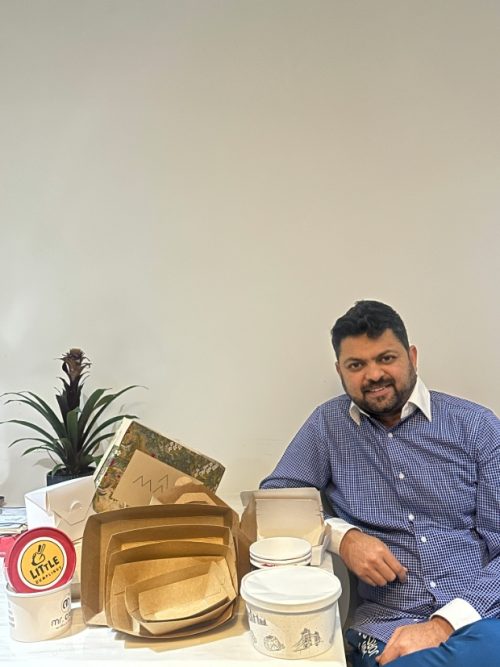
To prove their product’s durability, the team performed dogfooding, where the paper containers were filled with boiling rasam and sent with delivery executives to carry them around for hours. “It wasn’t just about holding liquid; it had to withstand the heat and retain its structure,” Srinidhi explains. The persistence paid off — MTR was impressed, and Aecoz took a significant step toward transforming the food industry.
“We also needed to look for innovative ideas to bring in more clients and that’s when we started customising the product with the client’s colourful branding,” adds Dhanvita.
Aecoz also started replicating other food boxes like the five CP (compartment) boxes, carrier tiffins, etc. “We do have certain weight and length restrictions for the container to withstand effectively,” addresses Dhanvita.
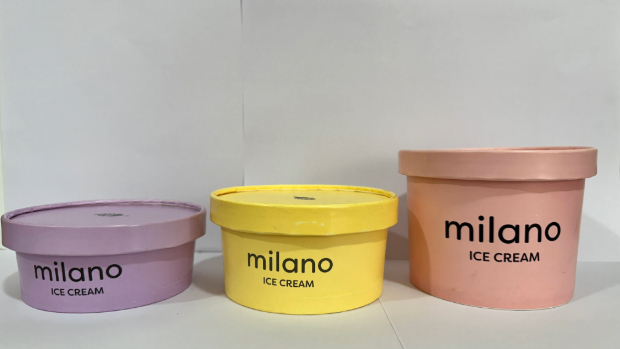
Milano Ice Creams, the Italian gelato company, too, have been using Aecoz products for more than three years. “I am satisfied with the quality of the product and they coordinate well with our brands’ team for customisation,” shares Sara Calderoni, the founder of Milano Ice Creams. “There are no leaks and they have been supplying durable packaging consistently,” Sara adds.
With clients like Lulu Hypermarkets, MTR, Milano Ice Creams, Magnolia Bakery, and Ritz-Carlton, Aecoz has been able to clock a revenue of Rs 5.2 crore in 2024, catering to places like Karnataka, Tamil Nadu, and Kerala. The brand has also been successful in entering the UK markets where the acceptance towards sustainability is more.
“Almost 50% of the packaging is paper in the UK. We are working to showcase Indian products in the United Kingdom,” shares Dhanvita proudly.
Bringing in more customers
While Aecoz understands that its products may not be immediately accessible to all, particularly small-scale food businesses, they believe that prioritising sustainable packaging is crucial for long-term public health.
“Exposure to microplastics from conventional packaging has been linked to potential health risks, including an increased risk of cancer. We encourage everyone to consider the long-term health implications and make conscious choices towards sustainable alternatives whenever possible,” shares Srinidhi.
“To effectively tackle the problem of single-use plastics, stricter enforcement of bans, particularly in densely populated urban centres like Bengaluru, is urgently needed,” affirms Dhanvita, highlighting what people in power can do to tackle the 20,000 tonnes of plastic thrown away every month.
From the company’s side, they have reduced the cost from 60 to 30% in order to provide an opportunity for small restaurants to try their paper packaging. “In fact, our 50 ml paper containers are cheaper than the ones available in plastic,” says Bharath, emphasising that the company is doing everything they can to bridge the gap in the price range.
Reflecting on their journey, the founders of Aecoz emphasise that sustainability is not just a business goal but a responsibility. “Every small action counts in building a cleaner, greener future,” says Bharath.
Visit their website to know more.
Edited by Arunava Banerjee; All images courtesy Aecoz
No comments:
Post a Comment